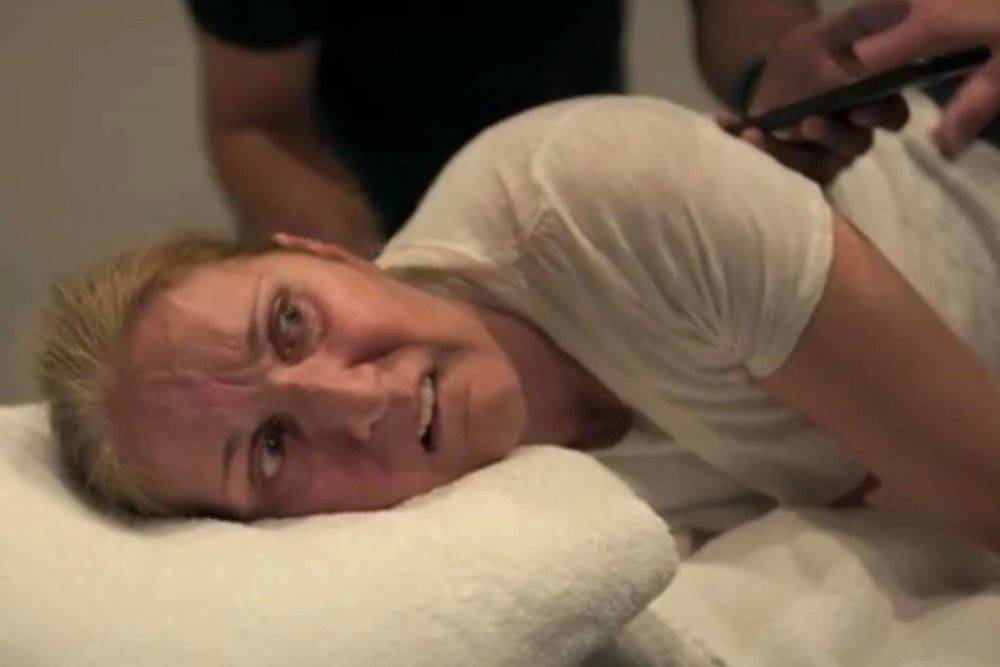Canadian singer Céline Dion has garnered attention and admiration for bravely sharing her struggle with stiff person syndrome (SPS) in her new documentary, “I Am: Céline Dion”.
In a poignant and harrowing scene, Dion, 56, is seen grappling with an agonizing SPS attack, highlighting the challenges of living with this rare condition.
What is Stiff Person Syndrome?
Stiff person syndrome (SPS) is a rare and debilitating neurological disorder characterized by severe muscle stiffness and painful spasms. Often referred to as the “human statue disease,” SPS can cause muscles in the torso and limbs to alternate between rigidity and spasming, severely impacting mobility and quality of life.
Causes and Mechanism
SPS is believed to be an autoimmune condition. The immune system mistakenly attacks the body’s own nerve cells that control muscle movement. This attack disrupts the production of gamma-aminobutyric acid (GABA), a protein essential for regulating motor neurons. The resulting low levels of GABA cause neurons to misfire, leading to the characteristic spasms and rigidity.
Symptoms
The primary symptoms of SPS include:
- Severe muscle stiffness and rigidity in the torso and limbs.
- Painful spasms that can be triggered by loud noises, sudden movements, or emotional distress.
- Heightened sensitivity to sound, touch, and emotional stimuli.
- Increased stress and anxiety due to the unpredictability of spasms.
In extreme cases, these spasms can be forceful enough to dislocate joints or fracture bones, and they may even affect the chest muscles, potentially inhibiting breathing.
Risk Factors and Associations
SPS typically develops between the ages of 40 and 50 but can also affect younger or older individuals. Women are twice as likely as men to develop SPS. The condition is extremely rare, affecting approximately one or two people per million.
SPS is often associated with other autoimmune disorders, such as type 1 diabetes, vitiligo, and pernicious anaemia. It is also more common in people with certain cancers, including breast, lung, kidney, thyroid, and colon cancers.
Diagnosis for Stiff Person Syndrome
Diagnosing SPS can be challenging due to its rarity and the overlap of symptoms with other neurological disorders like Parkinson’s disease or multiple sclerosis. However, two primary tests can confirm SPS:
- Antibody Test: This test looks for elevated levels of glutamic acid decarboxylase (GAD) antibodies in the blood. High levels of GAD antibodies are indicative of SPS. However, they can also be elevated in people with type 1 diabetes.
- Electromyogram (EMG): This test assesses the health of muscles and motor neurons by inserting a needle into the affected muscles to record electrical activity.
Treatment and Management for Stiff Person Syndrome
There is currently no cure for SPS, but several treatments can help manage symptoms:
- Medications: Drugs like diazepam and baclofen can control spasms and reduce muscle stiffness. In severe cases, therapies to manipulate the immune system, such as immunoglobulin transfusions, may be used to increase GABA levels.
- Physical Therapy: Physical and aqua therapy can help improve muscle function and mobility.
- Lifestyle Adjustments: Managing stress and avoiding known triggers can help reduce the frequency and severity of spasms.
Prognosis and Fatality
While SPS is not typically fatal, the condition can lead to life-threatening complications. Injuries from falls or severe spasms, infections, and blood clots from immobility are potential risks. In extreme cases, spasms affecting the chest muscles can inhibit breathing, posing a serious health threat.
Céline Dion’s Journey
Céline Dion first revealed her diagnosis with SPS in December 2022. However, she added that she had been living with the condition for 17 years. Her openness about the disease in her documentary sheds light on the daily struggles faced by those with SPS and raises awareness about this rare condition. Dion’s willingness to share her experiences inspires many and underscores the importance of understanding and supporting individuals living with rare diseases.
Conclusion
Stiff person syndrome is a rare and challenging condition that can severely impact the lives of those affected. Through increased awareness and understanding, as highlighted by Céline Dion’s brave disclosure, there is hope for better support and treatment options for individuals living with SPS.

